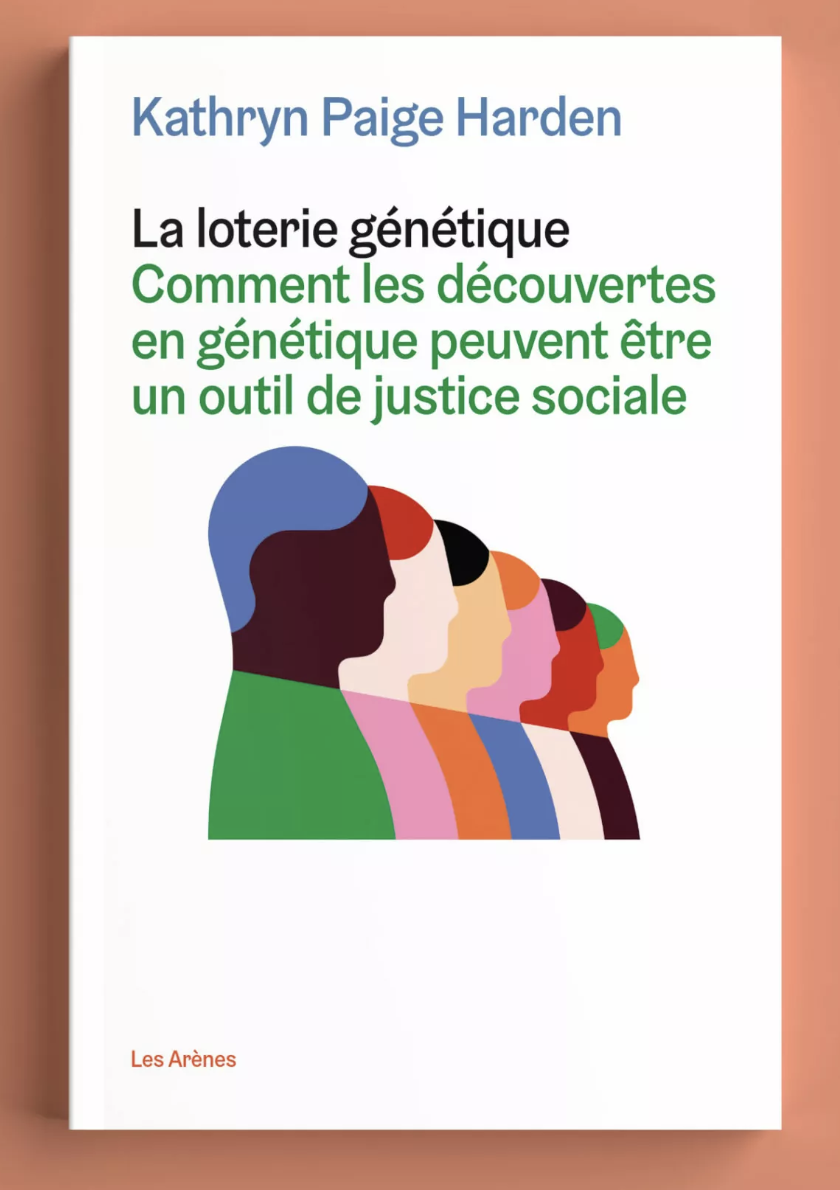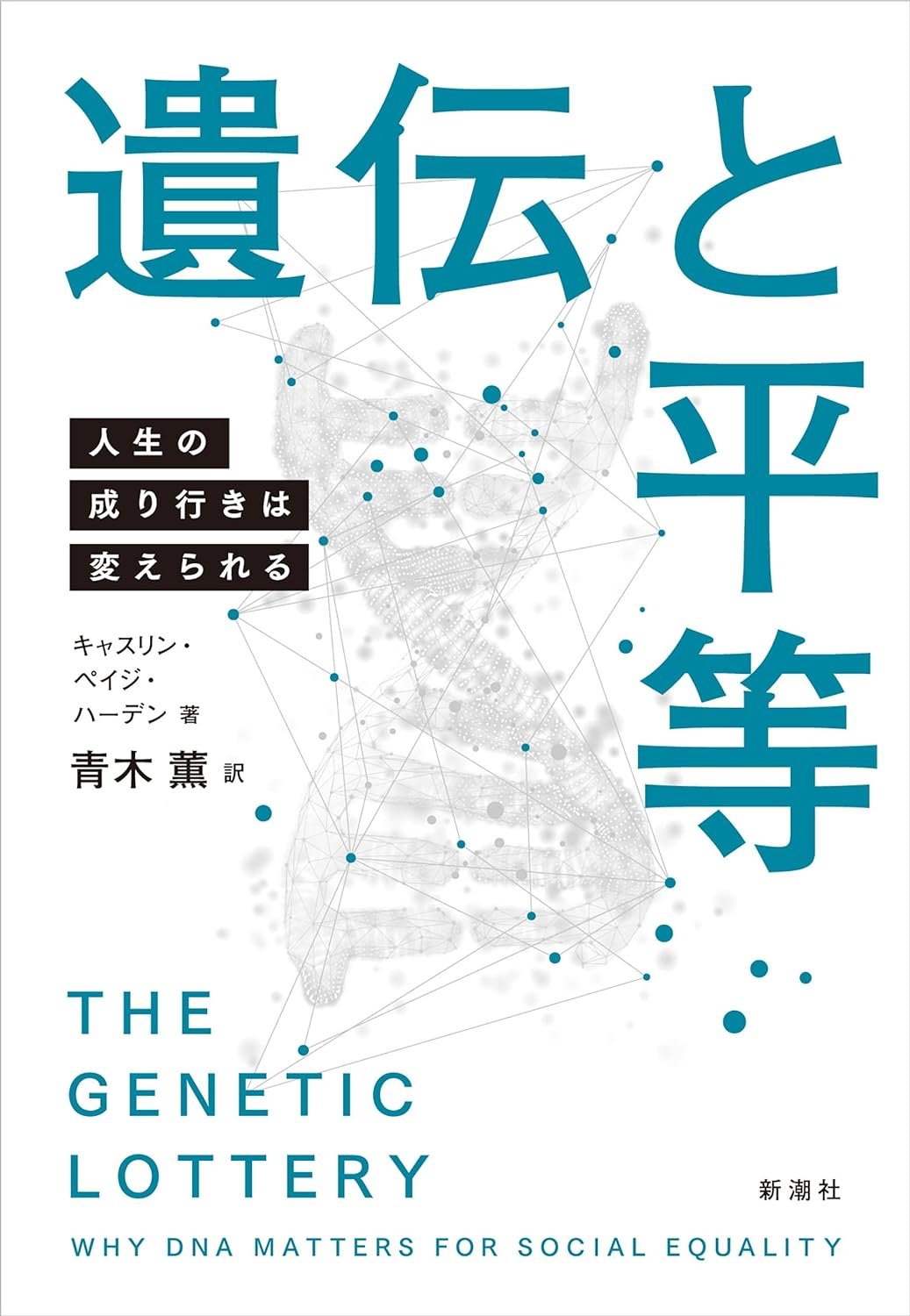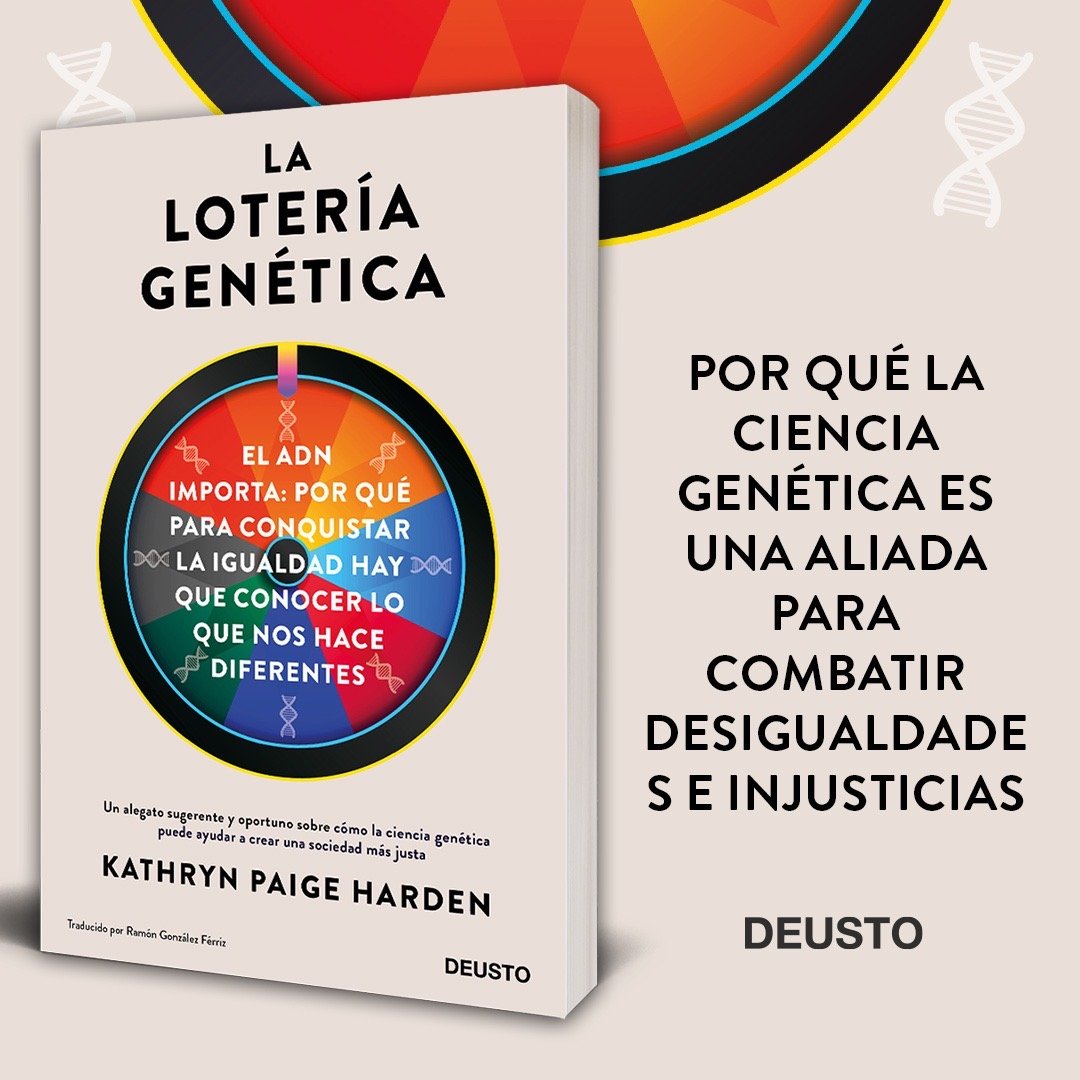Reclaiming genetic science from the legacy of eugenics, this groundbreaking book offers a bold new vision of society where everyone thrives, regardless of how one fares in the genetic lottery.
One of The Economist’s Best Books of 2021





What People Are Saying
"The ultimate claim of The Genetic Lottery is an extraordinarily ambitious act of moral entrepreneurialism. Harden argues that an appreciation of the role of simple genetic luck—alongside all the other arbitrary lotteries of birth—will make us, as a society, more inclined to ensure that everyone has the opportunity to enjoy lives of dignity and comfort."
- Gideon Lewis-Kraus, The New Yorker
“This brilliant book is without a doubt the very best exposition on our genes, how they influence quite literally everything about us, and why this means we should care more, not less, about the societal structures in which we live.”
-Angela Duckworth, author of Grit
"[An] outstanding new book. . . . It’s scientifically spot on, historically adroit, and excellently written. Required reading."
- Adam Rutherford, author of How To Argue with a Racist
“A thoughtful, brave, and very engaging book. In contrast both to those who see genetic differences as justifying hierarchy and to those who reject the study of the influence of genes on social stratification, Harden argues that understanding the findings of behavioral genetics is essential if we are to create a more just society.”
— Peter Singer, Princeton University
"[Harden] is a beautiful writer, weaving together personal narrative and complex technical concepts skillfully. Her writing is accessible to nonexperts, and the argument she makes—that it is both valuable and politically progressive for researchers of social outcomes to study DNA—is provocative. With this argument, The Genetic Lottery invites a necessary debate."
- Daphne Martschenko, Hastings Center Report
“Genetic research has the potential to offer illuminating insights, and no one benefits if those insights remain in the dark.”
- Jennifer Latson, Texas Monthly
“…Harden makes effective use of examples, anecdotes, and analogies. These are all read through her voice, which is so objectively charming that we engage the material with an open heart …”
- C. Brandon Ogbunugafor, American Journal of Biological Anthropology
“The book is a masterly tour of the state of the art of behavioral genetics and its relevance for pressing social questions…”
- Bryan Cwyk, Bioethics
“To me, the aim of genetic research should be threefold: to find out which differences between people are real, which of those matter, and how to use that knowledge to get the best outcomes for all people. This fascinating book is a step toward that goal.”
— David Epstein, author of Range and The Sports Gene
“In this thoughtful, important, and fascinating book, Harden presents a new synthesis of genetics and egalitarianism, showing how an appreciation of the power of genes is essential for moving us towards a good and just society. The Genetic Lottery is going to have a major impact on how everyone thinks about luck, merit, and human nature.”
— Paul Bloom, Yale University, author of The Sweet Spot
“A clear case on a complex subject.”
- The Economist, “Best Books of 2021”
"The Genetic Lottery is a good read, peppered with relatable stories and examples. Harden pulls off the trick of simultaneously introducing a technical field to newcomers; addressing deep, specialist debates; and taking seriously the intersection of scientific and philosophical analyses of inequality."
- Aaron Panofsky, Science
“The Genetic Lottery is an engagingly written and highly accessible account of how genes shape our lives."
- Robert Frank, author of Success and Luck: Good Fortune and the Myth of Meritocracy
“… one of the most impressive things about the book is Harden’s crystal-clear exposition of complex scientific research and methods. This alone is a gift to the public and every scientist should be grateful to her for helping the public understand genomic research and causal inference."
- Jonathan Rothwell, author of A Republic of Equals: A Manifesto for a Just Society
“This is a fascinating and detailed discussion of how genetic and environmental factors are braided together in all of us, shaping our destinies for good or ill. Harden’s ideas challenge existing orthodoxies, and she is also aware that complex research such as this is often misused. But her passionate commitment to tackling inequality and changing society is not to be doubted.”
- PD Smith, The Guardian
“… an accessible introduction to the current state of behavioral genetics … Her well-argued text is an excellent example of how to make difficult genetic concepts clear …and her mastery of the broad, conflicted literature surrounding both behavioral genetics and social policy is put at the service of important questions that we still haven’t properly addressed. My guess is that her book is going to remain on our bookshelves for a while to come yet.”
- Jonathan Flint, Current Biology
